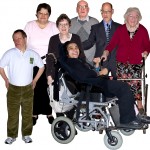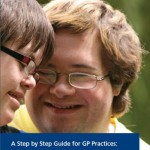
Hannah Wallace summarises a qualitative study exploring the ‘triple empathy problem’ among autistic adults attempting to access healthcare, and how this can contribute to adverse outcomes.
[read the full story...]
Hannah Wallace summarises a qualitative study exploring the ‘triple empathy problem’ among autistic adults attempting to access healthcare, and how this can contribute to adverse outcomes.
[read the full story...]
Chris Sampson evaluates a cost-of-illness analysis on the economic burden of Obsessive Compulsive Disorder in the UK.
[read the full story...]
Kate Chartres and Dafni Katsampa summarise a systematic review exploring anxiety, depression, trauma-related, and sleep disorders among healthcare workers during the early months of the COVID-19 pandemic.
[read the full story...]
Kate Chartres summarises a recent mixed-methods study of the healthcare received by patients diagnosed with a personality disorder on acute general hospital wards.
[read the full story...]
How do staff and family carers recognise when somebody they support is in pain and what emotional impact does this have on them?
Here, Nick Burton looks at a small scale qualitative study, which set out to explore this issue for some paid carers and family carers.
[read the full story...]
Health inequalities experienced by people with learning disabilities are well documented in the literature.
Here, in her debut blog, Sarah Richardson looks at the results of a survey of community learning disability nurses regarding their role in implementing public health policies, focusing on health prevention and protection.
[read the full story...]
Poor communication between people with learning disabilities, their carers and health professionals has been cited as an element of the explanation of health inequalities faced by people with learning disabilities.
In his debut blog, Tom Crossland looks at one study which used actors with learning disabilities as ‘standardised patients’ in the training of medical students in order to see if this might improve communication and diagnostic skills.
[read the full story...]
People with learning disabilities experience health inequalities compared to the general population, compounded by the number of health related problems thye may have related to having a learning disability.
Here, in her debut blog, Tara Quinn-Cirillo adds her reflections to an assessment of this incentivised scheme.
[read the full story...]
Health Action Planning was advocated in the 2001 White Paper and hospital passports are becoming accepted practice. But what impact are they having on outcomes for people with learning disabilities?
Here Alison Giraud Saunders looks at a systematic review of published research on health records held by people with learning disabilities which looks at this question.
[read the full story...]
Down syndrome is the most common cause of learning disability in the UK and life expectancy has shown a dramatic increase in the last fifty years. However, people with Down syndrome face significant health issues.
In this blog, GP Matt Hoghton looks at a recent clinical review published in the BMJ, which provides advice and guidance on managing care and support for people with Down syndrome.
[read the full story...]